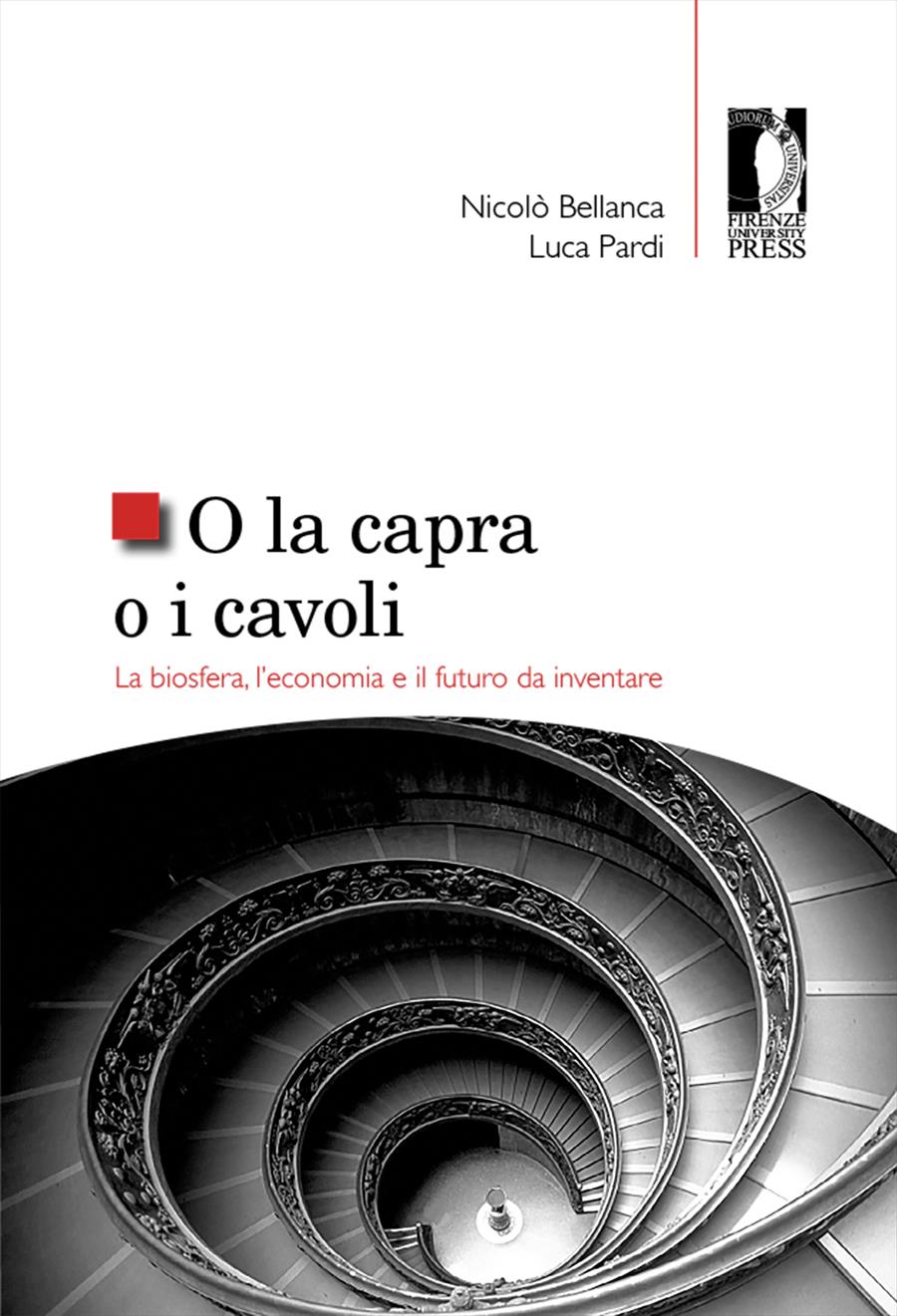- O la capra o i cavoli
- Nicolò Bellanca, Luca Pardi
Ritirata sostenibile! I tanti modi con cui possiamo adattarci al cambiamento
- Nicolò Bellanca
- Luca Pardi
- © 2020 Author(s) |
- CC BY 4.0
- DOI: 10.36253/978-88-5518-195-2.16
This Chapter examines the paths along which we humans could create an economy within planetary boundaries. To prevent the contraction of human activities from translating into a traumatic collapse, we should accept that contraction and indeed accelerate it. The negative impact on us would be greater, in fact, if we tried to stave off the decline, or slow it down. Given this paradox, the Chapter discusses how to support the return of socio-economic metabolism to the borders. In particular, it examines interventions at the individual, national and supranational level; mercantile policies; forms of collective and mutual action; measures that leverage systemic turning points. Finally, it thinks about how the relationship between humans and the environment is changing in terms of mutual "resonance".
- Keywords:
- Planetary boundaries,
- homeostasis,
- global collective action,
- mutualism,
- leverage points,
- Hartmut Rosa,
University of Florence, Italy - ORCID: 0000-0002-3809-3455
CNR-IPCF, Institute for Chemical-Physical Processes, Italy - ORCID: 0000-0002-6870-1490
- S. Barrett, Why Cooperate?, Oxford University Press, Oxford 2007.
- K. Bruckmeier, Global Environmental Governance, Palgrave Macmillan, London 2019. J.-P. Dupuy, Fare come se il peggio fosse inevitabile, in Dove va il mondo?, Bollati Boringhieri, Torino 2013.
- J. S. Foer, Possiamo salvare il mondo, prima di cena, Guanda, Milano 2019. J. M. Greer, The Ecotechnic Future, New Society Publishers, Gabriola Island 2009.
- J. M. Greer, The Wealth of Nature, New Society Publishers, Gabriola Island (British Columbia) 2011.
- T. P. Lianos, Steady State Economy at Optimal Population Size, “Journal of Population and Sustainability”, 3(1), 2018, pp. 75-99.
- D. H. Meadows, Pensare per sistemi, Guerini Next, Milano 2019 (ed. orig. 2008).
- J. S. Mill, Sulla libertà, Edizioni di storia e letteratura, Roma 2011 (ed. orig. 1859).
- I. M. Otto et al., Social tipping dynamics for stabilizing Earth’s climate by 2050, “PNAS”, 117(5), 2020, pp. 1-12.
- H. Rosa, Social Acceleration, Columbia University Press, New York 2013.
- H. Rosa, Resonance, Polity Press, Cambridge 2019.
- T. Sandler, Global Collective Action, Cambridge University Press, Cambridge 2004.
- T. Sandler, Overcoming Global and Regional Collective Action Impediments, “Global policy”, 1(1), 2010, pp. 40-50.
- P. Servigne e G. Chapelle, L’entraide. L’autre loi de la jungle, Éditions Les Liens Qui Libèrent, Paris 2017.
- R. Solnit, A Paradise Built in Hell. The Extraordinary Communities That Arise in Disaster, Penguin Books, New York 2012.
- R. B. Steward et al., Building blocks: a strategy for near-term action within the new global climate framework, “Climatic Change”, 144(1), 2017, pp. 1-13.
- E. O. Wilson, Metà della Terra. Salvare il futuro della vita, Codice edizioni, Torino 2016 (ed. orig. 2016).
Chapter Information
Chapter Title
Ritirata sostenibile! I tanti modi con cui possiamo adattarci al cambiamento
Authors
Nicolò Bellanca, Luca Pardi
Language
Italian
DOI
10.36253/978-88-5518-195-2.16
Peer Reviewed
Publication Year
2020
Copyright Information
© 2020 Author(s)
Content License
Metadata License
Bibliographic Information
Book Title
O la capra o i cavoli
Book Subtitle
La biosfera, l’economia e il futuro da inventare
Authors
Nicolò Bellanca, Luca Pardi
Peer Reviewed
Number of Pages
210
Publication Year
2020
Copyright Information
© 2020 Author(s)
Content License
Metadata License
Publisher Name
Firenze University Press
DOI
10.36253/978-88-5518-195-2
ISBN Print
978-88-5518-194-5
eISBN (pdf)
978-88-5518-195-2
Series Title
Studi e saggi
Series ISSN
2704-6478
Series E-ISSN
2704-5919
